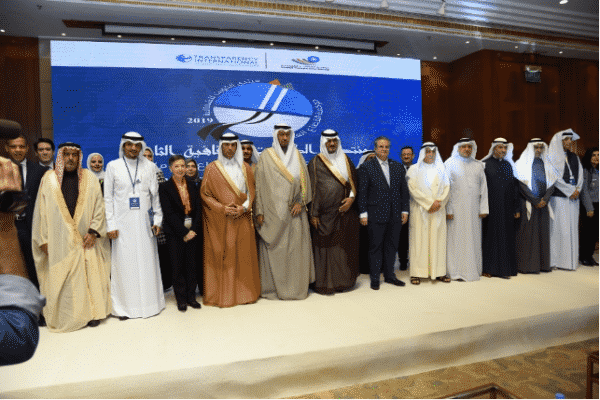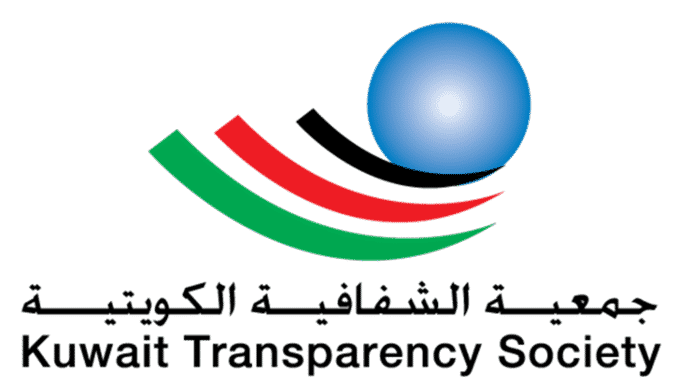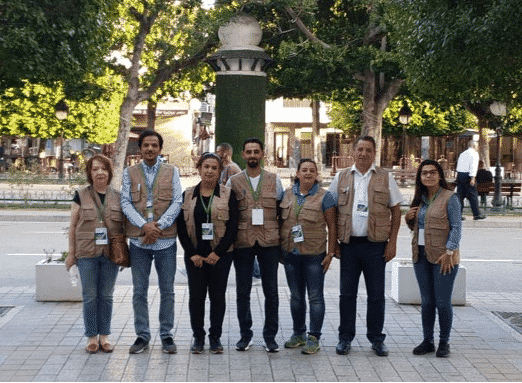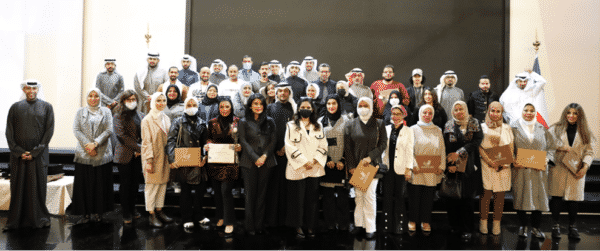Please present yourself:
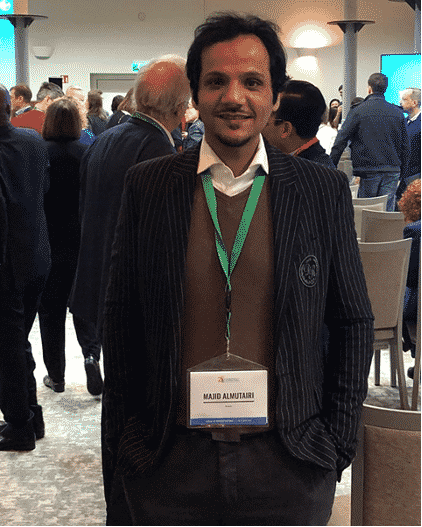 My name is Majid al-Mutairi. I am currently the Chairman of the. Kuwait Transparency Society and have occupied several other roles and positions:
My name is Majid al-Mutairi. I am currently the Chairman of the. Kuwait Transparency Society and have occupied several other roles and positions:
- Chairman of the office of democracy – Kuwait Transparency Society since 2012
- General Coordinator of the Eighth Transparency Forum on Public Sector Governance, December 2019
- Civil society representative on the Supreme Committee of the National Strategy to promote integrity, transparency and anti-corruption
- Member of the support team for the Transparency International Strategy 2020-2025
- International observer and member of the Arab Network for Elections Democracy, having observed many international elections, the most recent of which was the Tunisian election
- Leading the local team to monitor the Kuwaiti parliamentary elections in the years 2008, 2009, 2012, 2013, 2016 and 2020, as well as the by-elections for the years 2014, 2016 and 2021
- Supervising and monitoring many municipal council elections as well as civil society organizations and student union elections
- Lecturer in democracy
- A writer, with a number of articles published in newspapers and magazines in Kuwait
What are your organization’s main goals?
The Kuwait Transparency Society works according to its annual strategy on three main goals:
- To promote and disseminate values of transparency, integrity and combating corruption through cooperation with the executive and legislative authorities, the media and opinion leaders.
- To strengthen the institutions of democratic governance, ensuring the integrity of the electoral process and fair representation for all voters, proposing laws that enhance freedom of speech and belief, and regulating political work with transparency and integrity.
- To support and advocate for many important issues related to society such as gender equality and female empowerment, youth empowerment and children’s protection and rights.
How does your organization operate?
Kuwait Transparency society is a non-profit organization, that has a chairman and board of directors which are responsible for all the decisions, strategies and policies, and the responsibilities are distributed to the members, in addition to several committees that complement the board’s work such as the Values Committee and the Integrity and Governance Reinforcement Committee. All members of these bodies work voluntarily. On the other hand, the society has a couple of employees, such as a finance auditor and an administrative officer.
What are the biggest successes your organization has accomplished in the field of anti-corruption in the past years?
- Submitting a proposal for a law regarding the establishment of a central body for governance in the public sector, with the aim of increasing the level of transparency and disclosure in the government. The proposal was submitted to his highness the Emir of the State of Kuwait, who then transferred it to the Council of Ministers, which lead to issuing a governance in the public sector guide. Coordination is underway with the Ministry of Planning to establish a specialized governance department.
- The decision that was issued in 2018 to form the Supreme Committee was a result for the society’s proposal which took six years of attempts for the government to approve the anti-corruption strategy, that works on formulating the national anti-corruption strategy, with the membership of 22 government agencies and the Kuwait Transparency Society as a representative of the civil organizations in Kuwait. Over the course of a year, the Committee has formulated the terms of the national strategy to enhance integrity and combat corruption, and it was approved in 2019.
- In 2019/2020, the Chairman of the Board, Mr. Majid Al-Mutairi, represented the Kuwait Transparency Society as a member of the support team for the Transparency International (TI) 2020-2030 strategy to add the priorities of the Middle East and North Africa region among the priorities of the international movement.
- The Kuwait Transparency society in cooperation with the Public Authority for Anti-Corruption (Nazaha), has formed a team to follow up on the government’s performance in dealing with the repercussions of the health crisis (Covid-19), and this was the first civil society’s initiative on a local and regional level.
- The Kuwait Transparency Society has participated as a representative of civil society in drafting the executive regulations of the Right of Access to Information Law within a team of governmental experts, and has contributed greatly to improving the final format of the regulations in line with international experiences in this regard. The Society is now in the process of monitoring the implementation as well as training government agencies to implement the law in line with transparency and anti-corruption standards.
What are the key challenges specific to your local context that your organization has been facing?
- Adoption of the Conflict-of-Interest Law: our organization has succeeded in putting pressure on government and parliament to issue a law prohibiting conflicts of interest, as it has passed by the Kuwaiti parliament in 2018, but unfortunately the Constitutional Court challenged it due to the presence of some texts that contradict the constitution, therefore the law was dropped. Since 2019 the Society has been working in parallel with the government and parliament to approve this law. In addition, it is important to close many loopholes in Kuwaiti Law such as gifts that politicians receive from the government under many names that are not criminalized by the law.
- Approval of the MP’s code of conduct: amending the internal regulations of the Kuwaiti parliament in line with transparency and anti-corruption standards, and establishing a values committee to hold parliamentarians implicated in suspected corruption cases accountable. Our organization submitted an integrated law proposal to the government and parliament in 2016 and we are still putting pressure to pass this law and regulations in partnership with the opinion leaders, other local organizations, and some members of Parliament.
- Activating and developing the anti-money laundering law and increasing the effectiveness and efficiency of the government’s supervisory body, especially considering the State of Kuwait’s exposure to several money laundering issues and the inability of the local procedural and legal system to effectively address these crimes. The society has conducted a workshop for its board members that aims to improve the level of institutional performance and raise awareness on the flaws of the law and government procedures. The Society also organized an international webinar with the participation of many international experts in this field, and is now collaborating with members of the Kuwaiti Parliament to introduce amendments to the existing laws to ensure their effectiveness.
- Because of the health pandemic, the work of the national anti-corruption strategy has been suspended, while the Society has worked hard to formulate and approve this strategy. We are still working to put pressure on the concerned authorities to re-launch the second phase, which has been suspended for nearly a year.
- Funding is a major problem for the Kuwait Transparent Society, among other civil society organizations in Kuwait were established after 2005, when the government stopped yearly funding that it used to provide to CSOs. Meanwhile, funding from the private sector or other entities has many restrictions such as high integrity and impartiality standards, including the limited amount of donations which only amounts to about 5%.
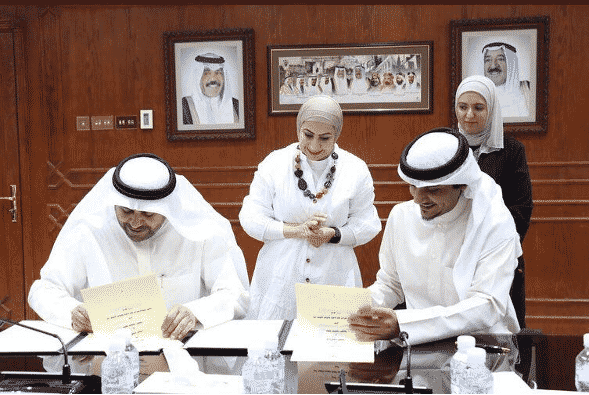
What can other organizations learn from you?
- We have a high technical level: since the Society was established, we were keen to continue building/improving the experiences and knowledge of our local team, so that they would be empowered to influence their surroundings.
- You cannot fight corruption alone: build good relationships with many local, regional, and international organizations; exchange experiences and successful stories, and establish local alliances for the purpose of forming powerful lobbies.
- Think outside the box: anti-corruption work is directly affected by the political and economic conditions that the country is going through, thus it is smart to choose your battle by selecting the right time and the most appropriate way to present ideas and projects in an acceptable way to all parties.
- Start with yourself: In order to be a role model in the fight against corruption, the members of the Board of Directors and members of the Committees are subject to the criteria of competence and good reputation when choosing to join our organization, and all our members sign a code of conduct and a statement of financial disclosure and disclosure of any conflicts of interest. We also have a Values Committee that is competent to audit the behavior of our members, as well as receive and investigate any complaints about the presence of any suspicious behavior that contradicts our principles. In addition, we publish all our periodic and financial reports on our official website in public view.
- Prioritize: To focus the efforts on the goals that can be achieved at the present time, and to postpone the goals that cannot be achieved according to the current conditions, we have learned to work carefully and comprehensively, as well as to be a good advocate for integrity and fighting corruption in all fields.
To what extent has your organization been involved in the UNCAC Review Mechanism?
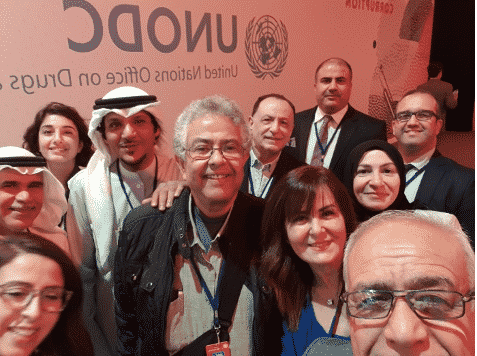
Kuwait Transparency society reviews and comments on the report of the State of Kuwait about the implementation of the United Nations Convention against Corruption (UNCAC). We also regularly attend the annual conference of the States Parties, and recently in 2020 we submitted our written observations to the Public Authority for Combating Corruption (Nazaha) – the governmental legal entity to follow up on the implementation of the provisions of the UN Convention – in their periodic report.
In general, during the last two years, the State of Kuwait has witnessed a positive interest in implementing the provisions of the agreement. Furthermore, the government has held two conferences to review the implementation mechanism, and our Society has participated in most of its periodic meetings, which lead to our contribution to the approval of the Freedom of Access to Information Law and the preparation of its executive regulations. We also monitor the efficiency of its implementation constantly.
The question is, are the government’s efforts taking place as expected? Undoubtedly, it is not compatible with our ambitions, especially since we have all the required elements to implement the agreement in its entirety, but there is lack of the government and parliament’s seriousness in approving the relevant laws, which increases society’s burden to press for implementation.
What motivates or inspires you to work in anti-corruption?
All the greats in history carried a similar message aimed at contributing to the development of the nation by promoting the values of accountability, democracy, equal opportunities, protection of public money and optimal investment of resources.
The credit for developing my abilities, inspiration and motivation goes to my former and current colleagues who believe that the best way to build a bright future is to build the foundations of the present on an honest and just manner.
What is an anti-corruption achievement you are proud of?
- The approval of the Anti-Corruption Public Authority Law in 2012. Our work began with networking and putting pressure on the government and parliament and persuading public opinion from 2008, and these efforts culminated in success after 4 years of hard work.
- The Kuwaiti Cabinet issued a decision to listen to our organization to monitor the elections officially in 2012, 2016, 2020, and 2012 after voluntary efforts that lasted nearly 6 years, which strengthened the role of civil society as a key partner in ensuring the integrity of the electoral process.
- The only partner of civil society organizations in the national anti-corruption strategy and a member of the technical committee to issue the executive regulations of the Freedom of Information Law, which is a sign of everyone’s confidence in the professionalism of our organization.
What have you learned from your organization’s work in anti-corruption that could be useful to others?
Gaining the confidence of others and their respect for your technical level shortens the path to reform, and does not present you as an opponent of anyone. The important thing is to reform the legal system in a way that helps dry up the hotbeds of corruption and fill all legislative and procedural defects. It is not to undermine a specific person, but rather to reform the public order, which is more effective and beneficial – we express our love for the homeland by reforming it.
Why is it important for you and your organization to be a member of the UNCAC Coalition?
Based on our philosophy that you cannot fight corruption alone, as well as to build the capabilities of our team and learn about the inspiring experiences of others in fighting corruption.
Is there anything you would like to mention that hasn’t been mentioned yet?
We are now working on a new strategy for political integrity in line with the Transparency International strategy, which we will launch next year. It revolves around 3 main points: 1. No money to steal, 2. No place to hide, and 3. No one to help. We are trying to adopt in each axis a set of good legislation, and I hope we will receive support and assistance for this initiative.
